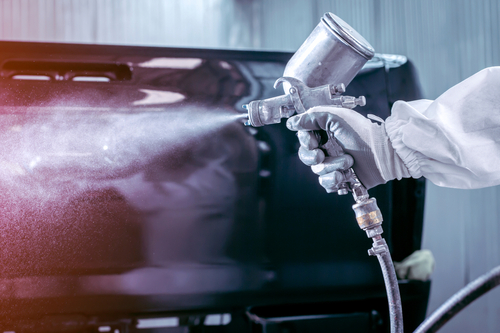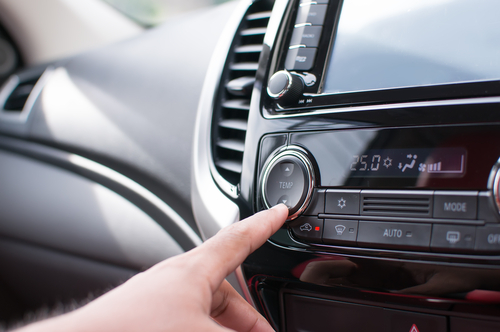
How to Maintain Your Car’s Air Conditioning System?
September 22, 2023
Car Respray Maintenance Tips: Keeping The Shine for Years
November 25, 2023Signs Your Car Battery Needs Replacement in Singapore
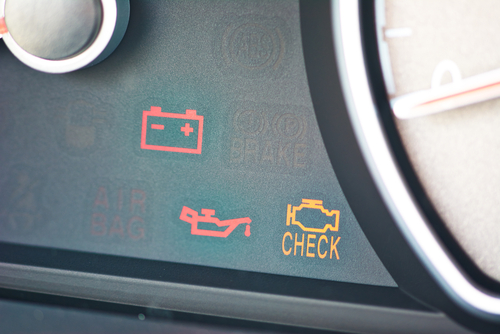
Signs Your Car Battery Needs Replacement in Singapore
Signs Your Car Battery Needs Replacement in Singapore. In the bustling streets of Singapore, where every commute is a challenge, and vehicles bear the brunt of sweltering tropical conditions, the role of a car battery is paramount.
This article aims to highlight the crucial signs that your car battery may need replacement.
We will explore the unique climate challenges car batteries face in Singapore and provide a structured overview of the article’s content.
The Lifespan of Car Batteries
Singapore’s climate poses a unique challenge for car batteries. The average lifespan of a car battery here is approximately 2 to 3 years, significantly shorter than in temperate regions.
Several factors contribute to the shorter lifespan of car batteries in Singapore, including high temperatures and humidity, which accelerate chemical reactions within the battery, ultimately shortening its life.
To extend the life of your car battery in Singapore, it’s crucial to perform regular maintenance. This includes cleaning the battery terminals, ensuring proper connections, and keeping the battery charged.
Slow Engine Crank
When you notice that your engine cranks slowly or struggles to start, it’s often a sign of a weak or failing battery. This can be particularly concerning in heavy traffic situations.
Singapore’s hot and humid weather can exacerbate this issue. High temperatures can increase internal resistance within the battery, causing slow cranking.
If slow engine cranking becomes a recurrent issue, it’s advisable to consider battery replacement to avoid getting stranded in traffic.
Dimming Headlights and Electrical Issues
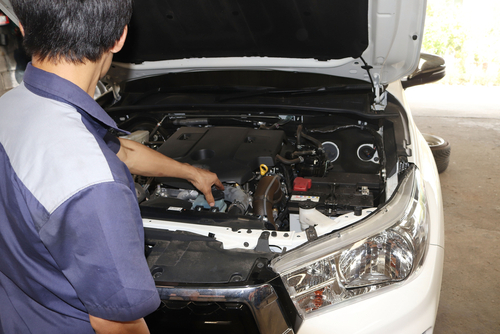
How a Failing Battery Affects Electrical Components
A failing battery can impact various electrical components in your vehicle. This includes dimming headlights, dashboard lights, and flickering accessories, which are telltale signs of a battery problem.
Signs of Dimming Headlights, Dashboard Lights, and Flickering Accessories
Dimming headlights and other electrical issues are most noticeable when starting the vehicle or using accessories. These are indications that your battery might be nearing the end of its life.
When to Interpret These Symptoms as a Battery Problem
If you consistently experience dimming headlights and electrical issues, it’s prudent to consider a battery replacement to maintain optimal vehicle performance.
Frequent Jump Starts
Frequent jump starts are often a clear sign that your car battery is struggling to hold a charge. This can result from a battery that’s nearing the end of its life or an underlying electrical issue.
It’s important to differentiate between a dead battery and other vehicle issues, as frequent jump starts alone may not always point to the battery.
If you find yourself relying on jumpstarts frequently, it’s a strong indicator that your battery is unreliable and should be replaced.
Unusual Smells and Corrosion
A failing battery can emit unusual odors, often described as a sulfur or rotten egg smell. This can indicate a malfunction within the battery.
Corrosion on the battery terminals is a common issue in tropical climates like Singapore. It can disrupt the flow of electricity and should not be ignored.
If you detect unusual smells or corrosion, addressing these issues promptly is essential to prevent further damage to your battery and electrical system.
Warning Lights on the Dashboard
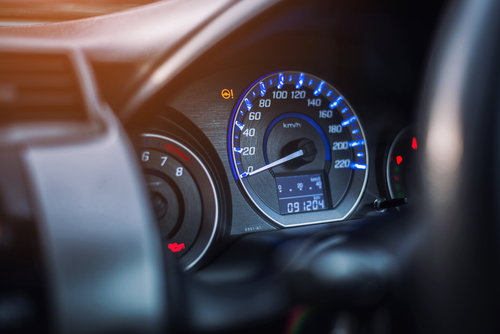
Understanding Dashboard Warning Lights Related to the Battery
Modern vehicles are equipped with sophisticated onboard diagnostics that can trigger warning lights related to the battery and charging system.
Interpreting Battery-Related Warning Messages
When a battery-related warning light illuminates on your dashboard, it’s a clear sign that you should investigate and potentially replace the battery.
Taking Immediate Action
Ignoring these warning lights can lead to more extensive damage and potentially leave you stranded. Immediate action is necessary.
Aging Battery
How to Determine the Age of Your Car Battery
Knowing the age of your car battery is essential for proactive maintenance. Batteries typically have a manufacturing date stamped on them.
Knowing When to Replace an Aging Battery Proactively
As a rule of thumb, consider replacing your battery if it’s over three years old, even if it’s not showing signs of failure.
You can check your car’s user manual or consult your vehicle manufacturer for information on battery age and replacement intervals.
Testing the Battery’s Voltage
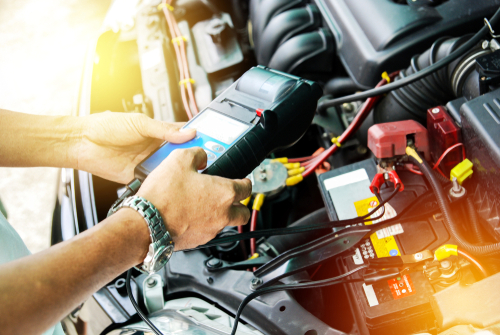
Testing your battery’s voltage is a simple yet effective way to assess its health. You can do this using a multimeter.
Performing a basic voltage test involves connecting the multimeter to the battery terminals and reading the voltage.
A healthy battery should read around 12.6 volts or higher. If the reading is significantly lower, it’s a strong indicator that the battery needs replacement.
Extreme Weather Impact
Singapore’s hot and humid weather accelerates the degradation of car batteries, reducing their lifespan.
High temperatures can cause the battery’s electrolyte to evaporate more quickly and lead to internal damage.
To combat the adverse effects of extreme weather, consider using insulated battery jackets or shields, which can help regulate temperature and prolong battery life.
Maintenance Tips to Extend Battery Life
Regularly clean your battery terminals and connections to prevent corrosion, which can hinder electrical flow.
When handling car batteries, it’s crucial to follow safety precautions, such as wearing protective gear and avoiding sparks.
Establish a routine maintenance schedule that includes regular inspections and testing to ensure your battery remains in top condition.
Buying a New Car Battery
Factors to Consider When Purchasing a New Battery
When it’s time to replace your car battery, consider factors like the battery type, size, and compatibility with your vehicle.
Types of Batteries Suitable for Singapore’s Climate
Opt for batteries designed for tropical climates, which are better equipped to handle the unique challenges posed by Singapore’s weather.
Consulting a professional mechanic or battery specialist can help you make an informed choice when purchasing a new battery.
Frequently Asked Questions

Can I Replace My Car Battery Myself?
Yes, you can replace your car battery yourself if you have the necessary tools and experience. However, it’s important to follow safety guidelines and manufacturer instructions to ensure a successful replacement.
Are There Eco-Friendly Options for Disposing of Old Batteries?
Singapore is committed to environmental sustainability. Many battery retailers and service centers offer recycling programs for old batteries, ensuring they are disposed of in an eco-friendly manner.
What to Do if My Car Battery Dies in Heavy Traffic?
Safety is the top priority if your car battery dies in heavy traffic. Pull to a safe location, turn on hazard lights, and call for roadside assistance. Avoid attempting to jump-start the vehicle in a busy traffic situation.
How Can I Prevent Battery Issues During Long-Term Vehicle Storage?
To prevent battery issues during long-term storage, it’s advisable to disconnect the battery or use a maintenance charger to keep it charged. Store the vehicle in a cool, dry place to minimize temperature-related damage.
Signs Your Car Battery Needs Replacement in Singapore – Conclusion
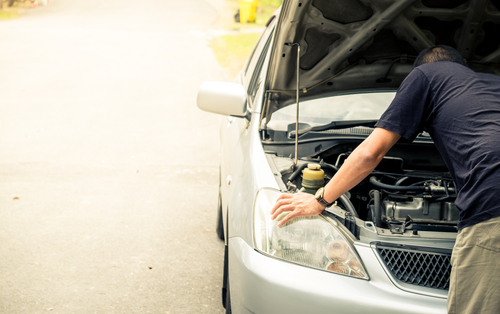
In conclusion, recognizing the signs that your car battery needs replacement in Singapore is essential for maintaining reliable vehicle performance in the demanding tropical climate.
From slow engine cranks to dimming headlights and unusual smells, each indicator is a signal that should not be ignored.
Proactive maintenance, regular inspections, and timely replacement are key to ensuring that your car’s heart – the battery – keeps beating strong.
By following these guidelines, you can extend the lifespan of your car battery and avoid the inconveniences and potential dangers of a battery failure.
Stay vigilant, keep your battery in optimal condition, and enjoy peace of mind on the roads of Singapore.
Are you seeking professional and reliable car servicing workshops in Singapore? Contact us today!

